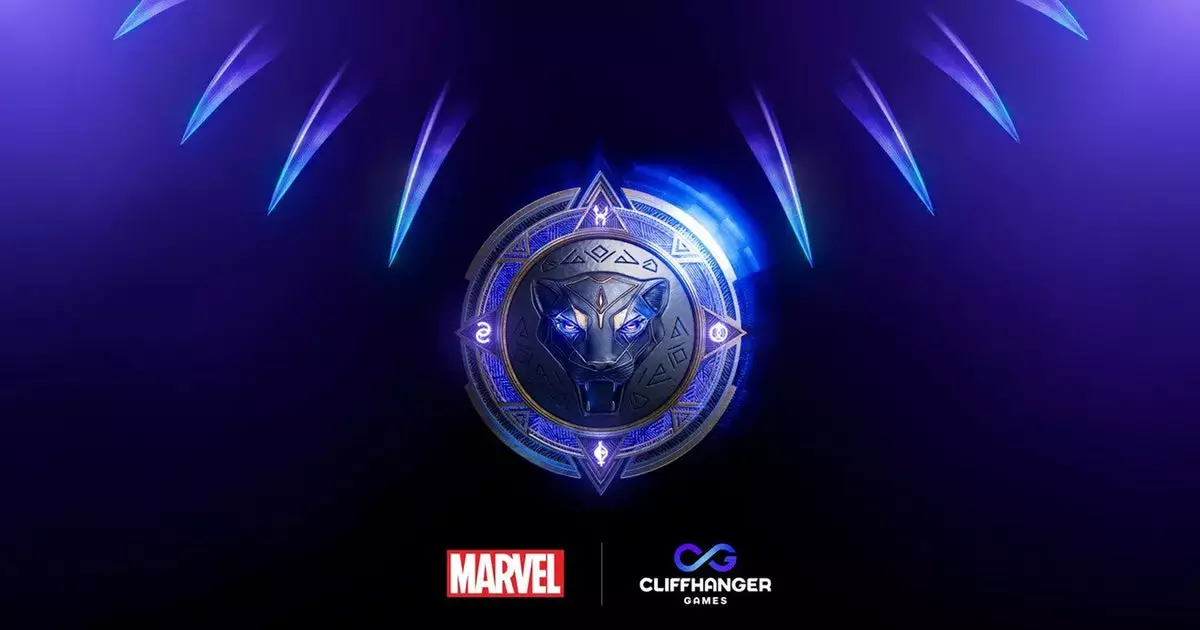In a landscape where gaming innovation is vital to the survival and evolution of the medium, Electronic Arts (EA) has delivered yet another shocking blow by cancelling their anticipated project, Marvel’s Black Panther, and subsequently closing Cliffhanger Games, the studio responsible for its development. This decision, reminiscent of countless controversial calls made by EA over the years, has ignited exasperation among gamers and industry insiders alike, as it represents not just a lost game but a squandered opportunity for creativity and storytelling.
Revelations from a recent Bloomberg report provide a clearer picture of the circumstances surrounding this baffling decision. The staff at Cliffhanger were reportedly blindsided by the news. The team, which had been actively recruiting talent, believed they were making considerable progress; their project had passed a critical development milestone set by EA executives. Yet, even though Black Panther had been in development for four years, the game had not advanced past the pre-production stage — a fact that evidently weighed heavily on the minds of the company’s higher-ups.
The situation is reminiscent of a chronic ailment plaguing major studios: the discomfort that arises from ambitious projects, all too frequently hampered by lengthy timelines and corporate expectations. The staffing difficulties resulting from recent hiring sprees, combined with the inherent complexities of building a game and a studio concurrently, seem to have coalesced into a perfect storm that led to inevitable disappointment.
The Vision Behind Black Panther: An Intriguing Concept
Before its abrupt cancellation, Black Panther held the promise of groundbreaking gameplay underpinned by the cherished mechanics of the Nemesis System — a concept introduced in Monolith’s acclaimed games, which provided unique player interactions with in-game characters based on their choices. The vision for Black Panther not only included the chance to embody T’Challa but also to navigate through the personal narratives of Killmonger and Shuri as they competed for the legacy of the Black Panther.
The potential for rich character development and interpersonal dynamics within a vast open-world Wakanda would have offered players an enthralling exploration of loyalty, rivalry, and personal growth. Additionally, the introduction of Skrulls, the notorious shapeshifting aliens, teased an element of strategy, where choices made throughout gameplay could result in unexpected allies or formidable adversaries.
However, the struggles that Cliffhanger faced in presenting this ambitious idea to EA executives raise troubling questions about the corporate environment within which creativity must operate. Rather than fostering innovation, the heavy hand of budgeting constraints and rigid production timelines stifled the very essence of what could have been a remarkable gaming experience.
The Corporate Disconnect: A Call for Change
Amid this debacle, it’s worth examining EA’s broader corporate ethos — an organization that allows its decision-makers to pocket tens of millions while laying off employees whose creative potential could have profoundly enriched the gaming landscape. The juxtaposition of lavish salaries for executive leadership and the disregard for the painstaking effort of development teams is not only disheartening but also serves as a critical commentary on the current state of the gaming industry.
EA has consistently faced backlash for its top-down approach, which too often places corporate profit above artistic integrity. The shuttering of Cliffhanger Games serves as a prelude to the larger issue at play: a culture that elevates bottom lines over the creative endeavors that lie at the heart of gaming. This persistent misalignment has led to missed opportunities and stifled innovation, leaving dedicated teams to wonder about the value of their contributions.
The abrupt end of Black Panther and the closing of Cliffhanger Games highlight a troubling pattern of mismanaged potential and lost opportunities within the gaming industry. While the gaming landscape is ever-evolving, it is crucial to remember that the heart of this evolution lies with the creativity and passion of those who work behind the scenes. There is a palpable need for a shift in corporate attitudes — one that values artistic vision and supports the game developers who strive for excellence even in the face of discouragement. What could have been an extraordinary addition to the Marvel gaming universe is now but a distant memory, overshadowed by corporate missteps that continue to plague the industry.


Leave a Reply